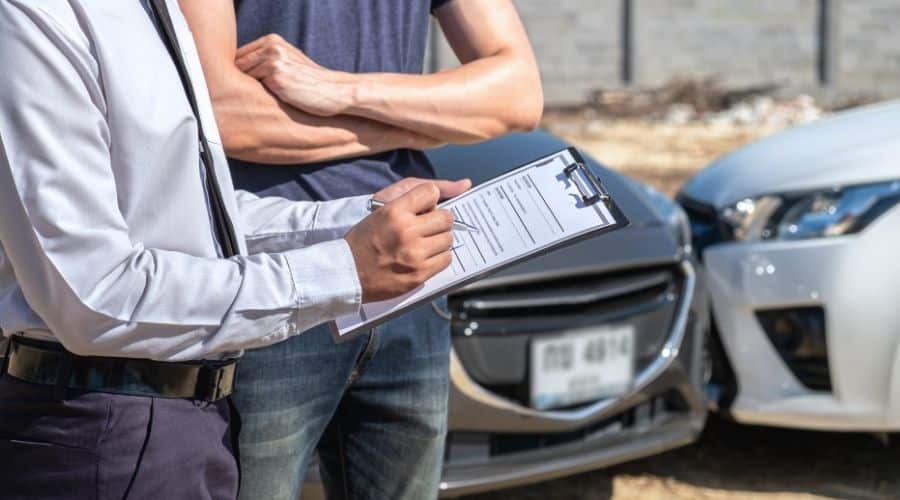When you’re moving to another state, car insurance changes are something you can’t ignore. Each state has its laws and minimum coverage rules. Understanding how to change state car insurance and the steps involved in moving to another state can help you avoid fines, gaps in coverage, and legal trouble.
Why You Need New Car Insurance After a Move
Car insurance isn’t one-size-fits-all. Every state sets rules for required minimum coverage, proof of insurance, and deadlines to switch your policy. If you don’t make the switch, you could be driving illegally in your new state. Also, insurance rates vary from state to state due to different laws, accident rates, and road conditions. This could mean paying more or even less, depending on where you’re headed.

Another thing to remember: your current insurance company may not operate in your new state. In that case, you’ll need to shop for a new provider. Even if your company is available, your policy will need to be updated with your new address to make sure you’re fully covered.
When to Start the Insurance Change Process
Don’t wait until after your move to deal with insurance. Many states require you to register your car and update your driver’s license within 30 to 90 days of establishing residency. To register a car, you need proof of insurance that meets the state’s requirements. If you miss these deadlines, you could face late fees or penalties.
It’s best to start calling insurance companies about a month before your move. That gives you time to compare quotes, understand what’s required in your new state, and avoid last-minute stress. You’ll also be better prepared to register your vehicle without delay.
Common Mistakes to Avoid When Changing Insurance States
Switching car insurance across state lines can lead to mistakes if you’re not careful. Here are some to watch out for:
- Letting Your Policy Lapse: Always overlap your old and new policies by at least one day to avoid coverage gaps.
- Assuming Your Coverage Transfers: Each state has different laws. Your old coverage may not meet the new state’s minimums.
- Not Updating Your Address: This affects not just your rates but also your eligibility for coverage.
- Forgetting to Cancel Old Insurance: If you forget, you might get billed even after you’ve moved.
- Delaying Registration: Without proof of state-compliant insurance, you can’t register your vehicle or get a license.
Avoiding these pitfalls saves you time, money, and legal headaches.
What Documents You’ll Need
Gather these items before making the switch to a new car insurance policy:
- Current car insurance policy
- Driver’s license
- Vehicle registration and title
- New home address
- Vehicle Identification Number (VIN)
- Proof of moving (if required by the insurance company)
- Having this information ready will make the process quicker and smoother.
Step-by-Step: How to Change State Car Insurance
Switching your car insurance doesn’t have to be hard. Follow this moving to another state car insurance process:
1. Contact Your Current Insurer
- Ask if they offer coverage in your new state.
- If they do, ask how to update your policy.
- If not, ask about canceling your policy and getting a refund for unused time.
2. Research State Requirements
- Look up the minimum coverage required in your new state.
- Check if uninsured motorist coverage or other add-ons are required.
- Note registration and license transfer deadlines.
3. Compare Quotes from Multiple Insurers
- Use online tools or work with a local agent like Cribb Insurance Group Inc in Bentonville, AR.
- Compare car insurance rates, coverage, and discounts.
4. Purchase a New Policy
- Make sure the new policy starts the day your move becomes official.
- Don’t cancel your old policy until the new one is active.
5. Cancel Your Old Policy
- Once your new policy is in effect, notify your previous insurer.
- Request confirmation and any refund owed.
6. Update Your Vehicle Registration and Driver’s License
- Bring your new proof of insurance when registering your vehicle.
- Visit your new state’s DMV or licensing office to update your license.
Can You Keep Your Current Insurance Provider?
If your insurance company operates in your new state, they might be able to update your policy. However, the terms, rates, and required coverage could be very different. Some insurers will require you to cancel the old policy and start a new one under their license in that state.

It’s still worth shopping around even if your insurer operates in your new state. A local agency, like Cribb Insurance Group Inc in Bentonville, AR, can provide advice and find you the best rate for your new location. They can also help ensure your policy meets all state-specific laws.
Make Insurance Part of Your Moving Plan
Moving to a new state is a big change, and switching your car insurance should be part of your moving checklist. From understanding state laws to finding the right coverage, knowing how to change state car insurance gives you peace of mind and legal protection. If you’re moving to or from Arkansas, Cribb Insurance Group Inc is here to help. Call us for expert car insurance in Bentonville and a smooth transition to your new policy.
Frequently Asked Questions
What happens if I don’t update my car insurance after moving states?
If you don’t update your insurance after a move, you may be driving without valid coverage. This can result in fines, denied claims, or issues registering your vehicle in your new state.
Can I use my current license plate in a new state?
Most states require you to surrender your old license plates when registering your vehicle in a new state. You’ll typically receive a new plate tied to your new address and registration.
How long do I have to report my new address to my insurer?
Most insurers recommend reporting your new address as soon as you move. Delaying this could lead to incorrect coverage or claim issues based on outdated information.
Do I need new proof of insurance when moving to another state?
Yes, when you switch states, you’ll need updated proof of insurance that reflects your new address and complies with your new state’s laws for registration and driving.
Will my driving history transfer to my new state?
Yes, your driving record typically transfers to your new state through the national driver registry. It may impact how your new insurance policy is rated.





